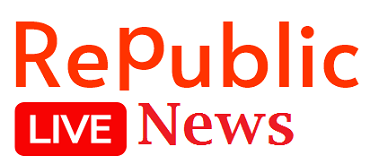Your website is a very important medium when it comes to connecting to your target audience. This means that you want to make sure that the website has all it needs to reach this person. You can put your website requirements together and outsource the development project to a third-party company. This is a company that provides quality and personalized website design and development services. They are very useful in helping you implement the content management system (CMS) that you have chosen. However, many businesses and web owners fail to understand the elements involved in choosing a CMS.
Choosing a CMS for your website: An introduction
You can start your search by using the “web development agency near me.” This will give you a list of the potential website design and development companies that you can work with. The next stage is for you to proceed to choosing the right CMS for your website. To do this, you will need to consider a long list of factors. While you may want to begin by listing out all that you need, you can also research different available CMS platforms. This will help you understand the right option to choose.
Tips to guide you when choosing the best content management system (CMS) for your website
While you may get a website developer Columbus Ohio company to design and develop the website, you may want to decide on the right CMS. Whether you outsource this CMS task to a development team, you will still follow the same pattern. You will work very closely with the design team to provide some of the objectives and goals of your website. If you are choosing a CMS for your website, you will need the following tips:
- Create clear goals: Before you get a web designer Columbus Ohio company to work on your website, you will have to set clear goals. Possible goals include the purpose of the website, the nature of its contents, and plans for future growth.
- Consider user-friendliness: If you were choosing a CMS, you should choose one that can be used easily. You want to make sure that all end users can use and access important features of your website.
- Ability to scale up in the future: The right CMS for your website should support the future scaling up of your business. You should ensure that the website design Columbus Ohio company develops a website that meets critical parameters. The CMS platform should be flexible enough to handle increasing content volume and traffic.
- Should be compatible with the needed features: If you were building your website, you may make a list of features that you want in it. This list could contain some essential features such as blogging, SEO tools, and e-commerce features. You must choose the right CMS platform that supports all of these features. A web design Columbus Ohio company can easily do this.
- Should support customization tools: If you are going to be choosing a CMS, it should support your website customization. This means that the CMS platform should be compatible with plugins, themes, and web customization tools. Using all of these solutions helps personalize your website to meet specific requirements.
- Look for one with excellent security features: One important tip to choosing a great CMS is to select one that offers secure and safe features. This option should be one that also has a great track record when it comes to addressing vulnerabilities and incidents.
- Should support your SEO strategy: Your SEO strategy will not go on as planned if you choose the wrong CMS platform. This is why it pays to choose one that supports your full SEO strategy. It should support several SEO best practices like mobile responsiveness, metadata, customizeable URLs, and all that.
- Consider the costs: When choosing a CMS platform for your website, you may want to consider the price. This means that you should factor in how much it costs to set up the platform at the start. Then, you should also estimate how much it costs to maintain the CMS platform regularly. Other cost factors to also consider include potential costs to scale the platform, plugins/themes, and upgrades.





